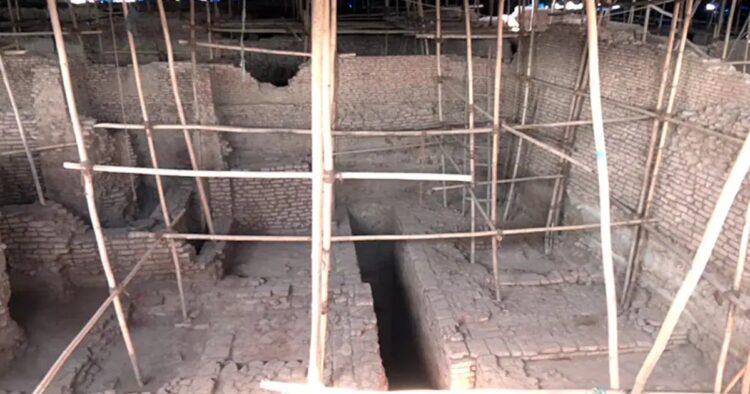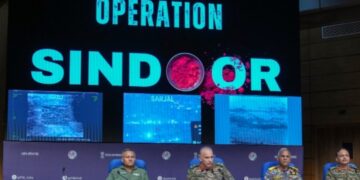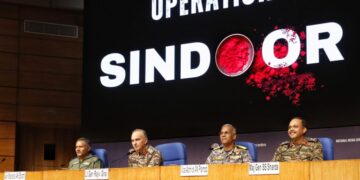In a groundbreaking discovery, researchers from IIT Kharagpur, Archaeological Survey of India (ASI), Physical Research Laboratory (PRL), Jawaharlal Nehru University (JNU), and Deccan College have unearthed a 2,800-year-old human settlement in Vadnagar, Gujarat, which happens to be the native village of Prime Minister Narendra Modi.
The excavation work, ongoing since 2016, has revealed a settlement that dates back to 800 BC, with evidence of seven cultural stages, including the Mauryan, Indo-Greek, Indo-Scythian, Hindu-Solankis, Sultanate-Mughal, and Gaekwad-British colonial rule. The findings were published in the journal ‘Quaternary Science Reviews’ under the title ‘Climate, human settlement, and migration in South Asia from Early historic to medieval period: Evidence from new archaeological excavation at Vadnagar, Western India.’
According to Dr. Anindya Sarkar, Professor of Geology and Geophysics at IIT Kharagpur, the excavation team has dug up to a depth of 20 meters, revealing a fascinating history of the region.
Archaeologist Abhijit Ambekar from ASI shared that the remains include pottery, copper, gold, silver, and iron objects, along with intricately designed bangles. Coin moulds from the Indo-Greek rule, including those of Greek king Appollodatus, were also discovered. Notably, one of the oldest Buddhist monasteries was found during the excavation.
The archaeological findings suggest that Vadnagar could be the oldest living city within a single fortification discovered in India. The settlement’s timeline is estimated to have started at least during 800 BCE, marking the early Iron Age or, questionably, the Late Vedic period. This period continued into the Mauryan rule and concluded around 150 BCE.
An intriguing aspect highlighted by Anindya Sarkar is the potential cultural continuity in India for the last 5,500 years, challenging the notion of a so-called Dark Age. Sarkar stated that during the last 2,200 years of India’s history, marked by various invasions from Central Asia, Vadnagar experienced seven invasions, leaving imprints on its successive cultural periods.
Archaeological Supervisor Mukesh Thakor explained that the excavated remains resemble a live city due to the excellent water management system. The site, he noted, housed people of different faiths. With more than one lakh remains unearthed and around 30 sites excavated in Vadnagar, this discovery provides a unique glimpse into India’s rich and ancient history.

















Comments